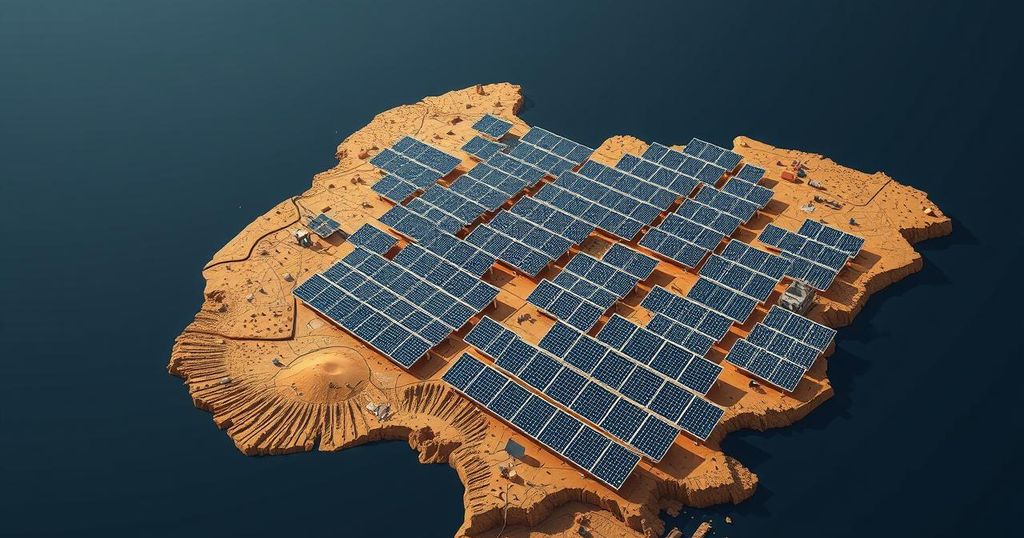Egypt Bolsters Djibouti’s Energy Independence with Solar Power Initiative
Egypt has partnered with Djibouti to initiate a solar power project intended to reduce Djibouti’s energy dependence on Ethiopia. The project includes the construction of a solar facility, financial backing from Egypt, and technician training for Djibouti. This development reflects broader geopolitical shifts in the Horn of Africa, particularly the endurance of existing tensions between Egypt and Ethiopia.
Egypt has strengthened its relationship with Djibouti by initiating a solar power project aimed at reducing Djibouti’s dependency on Ethiopia for energy. The project entails the establishment of a solar power facility in the arid regions of Djibouti, with potential expansions up to 300 kilowatts. The agreement was signed virtually by Egypt’s Energy Minister Mahmoud Essmat and Djibouti’s Energy Minister Yonis Ali Gued, emphasizing economic collaborative efforts while sidestepping potential regional tensions. This venture includes financial support from Egypt and the training of local technicians in Djibouti to manage the solar plant efficiently. Alexis Mohamed, an advisor to President Ismail Omar Guelleh, commented on the significance of the agreement, noting its alignment with the national energy policy that prioritizes social and economic development in Djibouti. The construction of the solar facility will commence near the village of Omar Jaggaa, contributing to the kingdom’s growth and independence in energy sourcing. Observers note that this initiative reflects shifting alliances in the Horn of Africa, particularly in light of existing tensions between Egypt and Ethiopia regarding the Nile River and ongoing security issues in Somalia. Historically, Ethiopia has maintained strong trade ties with Djibouti, relying on its port for nearly 95 percent of its imports and providing Djibouti with over 60 percent of its energy needs. Amidst ongoing discussions for enhanced cooperation between Djibouti and Ethiopia, such as proposals for new port developments, the recent developments in energy partnerships serve to alter the regional power dynamics. Djibouti has expressed an increasing demand for electricity, with projections expecting daily consumption to reach 1GWh by 2030. The solar power initiative, along with existing investments in geothermal energy, mirrors Djibouti’s commitment to renewable energy resources. Furthermore, the World Bank estimates that 65 percent of Djibouti’s populace has access to electricity, an amount projected to rise to 72 percent with the functional launch of the new transmission line and solar farm.
This article discusses the recent developments in energy relations between Egypt and Djibouti, outlining a new solar project aimed at providing Djibouti with alternative energy sources. The need for such projects arises from Djibouti’s significant reliance on Ethiopia for electricity and the growing demand for energy driven by increased commercial activities. In the context of regional politics, the article highlights the implications of Egypt’s cooperation with Djibouti against the backdrop of its contentious relationship with Ethiopia, particularly concerning Nile water usage and broader regional security issues.
In conclusion, Egypt’s solar power project in Djibouti represents a strategic shift that seeks to empower Djibouti while lessening its dependency on Ethiopia for energy. This initiative not only strengthens bilateral ties but also signals potential changes in the geopolitical landscape of the Horn of Africa, where energy independence remains a critical challenge for many nations. With rising energy demands and the push for renewable resources, Djibouti’s partnership with Egypt could pave the way for increased energy security and collaboration within the region.
Original Source: www.theeastafrican.co.ke




Post Comment